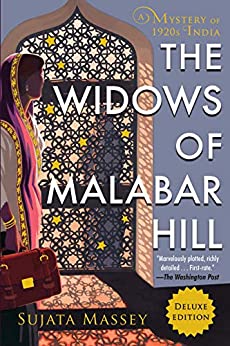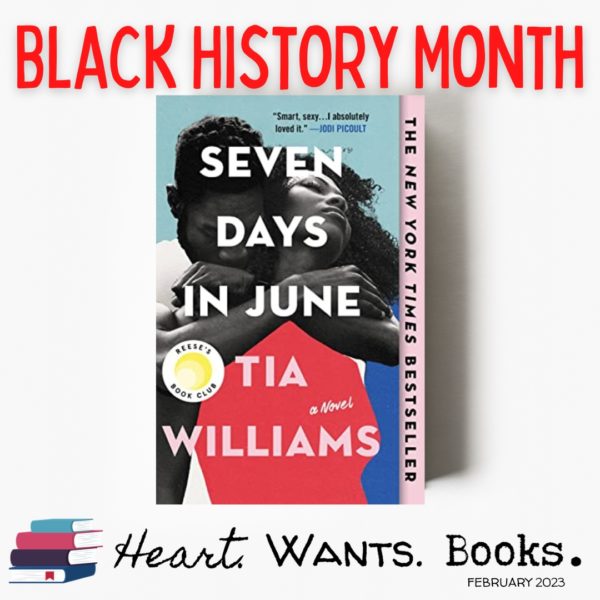The Widows of Malabar Hill by Sujata Massey July 21, 2022


The following post includes affiliate links. More details here. As you’re doing your Amazon shopping, we’d be ever so grateful if you’d use our affiliate link to do so as it helps pay the bills around here!
Perhaps my favorite thing about writing this blog is knowing that your favorite book bloggers will have the chance to discuss their thoughts about the books they read together. Talking about what we read helps me to consider angles I hadn’t before and opens my perspective, making the books even more enjoyable than they were on their own. We want to share that experience with you, and invite you to join us for Virtual Book Club on Friday, August 26 at 7:30pm CST. For those who sign up here, we’ll be discussing From Blood and Ash #1 by Jennifer Armentrout. Even if it’s not a title that you’d read on your own, consider dipping your toe into the genre or series, and seeing how talking about it with other readers improves the experience! We’d love to talk about books with you!

One theme that is found in many of my favorite books is a thread of themes that wind together. While I’m not ready to say The Widows of Malabar Hill by Sujata Massey is one of my favorites, it will be on the long list of contenders for 2022, and definitely has a thread of themes. On the surface, this is a historical mystery about the first female lawyer in Bombay, so there’s three already – historical fiction, mystery, and a story of someone being the “First Only Different,” as Shonda Rhimes calls it. There are actually two mysteries in the book though, the one of the widows, and the one of the mysterious stranger, who he is, and how he’s connected to Perveen. As mysteries do, they are both revealed slowly through the progression of the story and flashbacks, which are thankfully very clearly labeled. Readers also learn a bit about Zoroastrianism, the practice of purdah, and the general culture and development of Bombay in the 1920s.
Darling readers, as much as a thread of themes is usually my favorite, the personal nostalgia is actually my favorite part of reading The Widows of Malabar Hill. I got to travel to South India (hear, not Bombay) *cough* years ago on a summer study abroad, and there are many similarities. I usually traveled by motorized rickshaw, but the bicycle and even man-powered versions were still present. I’m familiar with the traditions of multigenerational households (which are still very much a practice in many parts of India), and the traditions of how women are expected to act after they come of age (yes, some of these are still practiced, although one piece in the text was new to me, but I won’t elaborate because spoilers). The two pieces I enjoyed the most were the Yazdani Bakery, which Massey described with such detail I could almost smell the yummy goodness, and the practice of decorating the front doorway with a chalk design. While I learned of these designs as kolams, and saw them done with rice flour in Tamil Nadu, Perveen, in the north, uses lime powder. Her mother tells her that the material was previously thought to provide some disinfectant to feet of those entering the home, as well as to provide a welcome and a way to demonstrate the “accomplishments of the household’s women.” In the south, my understanding is that the flour provided food for insects, and the design provided insight into the state of the household, as well as the aforementioned accomplishments of its women. Like Perveen, I do have some tin stencils (although I’ve never used mine, but perhaps I should), but watching women design by hand is nothing short of magical, seeing how they take a fist full of flour, sometimes in different colors, and slowly, methodically distribute it to create magnificent designs to welcome guests and indicate to neighbors the state of their household.
I’m not sure if The Widows of Malabar Hill qualifies as a cozy mystery, but it was quite cozy to me and I thoroughly enjoyed it, so I’m giving it 4 emphatic stars. It’s well written, masterfully crafted, and thoroughly engaging. I’m not likely to reread it, but I will likely continue with the series.
What’s a book that took you to a fabulous, nostalgic place?
~Nikki

Author Sujata Massey has been published in eighteen countries and has fifteen novels, two novellas, and many short stories under her name. Her fourteen novels are blessed to contain Agatha Award, Lefty Award, and Macavity Award winners, plus finalist places for the Edgar Award, Anthony Award, and Mary Higgins Clark Award. Massey’s particular settings are pre-independence India and modern Japan. She was born in England to parents of Indian and German descent, was raised in St. Paul, Minnesota, and calls Baltimore, Maryland home. She earned her Bachelor of Arts in Writing Seminars from Johns Hopkins University and wrote features for the Baltimore Sun before becoming a full-time novelist. Besides the Perveen Mistry Mystery Series, she also boasts the Rei Shimura Mystery Series, and stand-alone mystery novel The Sleeping Dictionary.
I knew reading The Widows of Malabar Hill with Nikki would be an adventure in nostalgia for her. I also knew that I was going to be learning a lot about the lives of women in pre-independence India. I didn’t realize that my favorite part of the book was going to be how the women of different religious backgrounds interacted with each other, in private and in public. Perveen Mistry is an Oxford University educated Parsi woman who works as a solicitor at her father’s law firm in 1921, a time when women weren’t allowed to sit for the bar examination to be able to argue cases in court. The Parsi people is an ethnoreligious group in India who follow the religion of Zoroastrianism and fled Arab Muslim conquered Persia (present day Iran) in the 7th century CE. The Mistry family were originally builders, architects, and real estate developers in Bombay, but Perveen’s father became an attorney to help Mistry Construction navigate legal waters. Perveen is able to serve her father’s firm in the matters of family and contract law. She needed to be familiar with the religious laws, especially those of marriage, divorce, and inheritance, for Parsis, Hindus, Muslims, as well as the British colonizers. I am amazed at Parveen’s multilingual abilities, though I know it is still very common in India today. The way she expresses respect and understanding for women of different religions and economic standing, especially her clients, the three Muslim widows of a polygynist textile mill owner, kept me in awe and anxious anticipation for anytime when she would inadvertently make a faux pas. I’m not a fan of vicarious anxiety, and I blame it on my Enneagram 1-ness.
The themes on themes on themes that Nikki mentions above is obviously a love of mine as well and I can’t wait to read the next books in the series, The Satapur Moonstone and The Bombay Prince to see how they are expanded upon. Honestly, I am surprised that I haven’t remained a reader of mystery novels since my love of Nancy Drew was so deep as a child. I’m giving The Widows of Malabar Hill a four star review since I know I won’t re-read it, but will definitely look forward to experiencing 1920s India through the rest of Massey’s series in the future.
What low-key surprises you that you like a genre when you read it as an adult, but upon reflection you knew you were obsessed as a child?
~Ashley

PLEASE SUPPORT US WHEN YOU SHOP BY FIRST CLICKING ON THE IMAGES BELOW:








